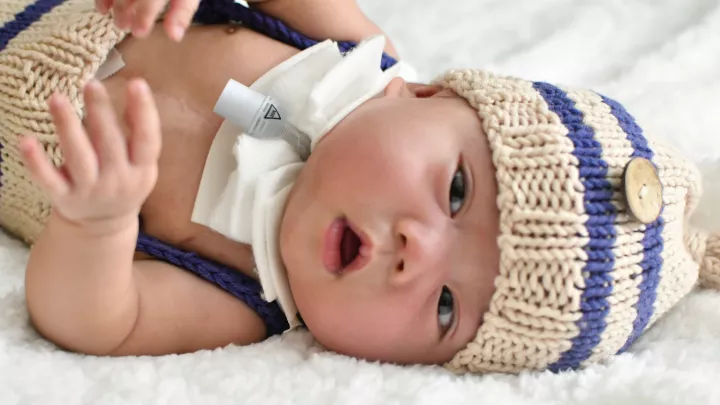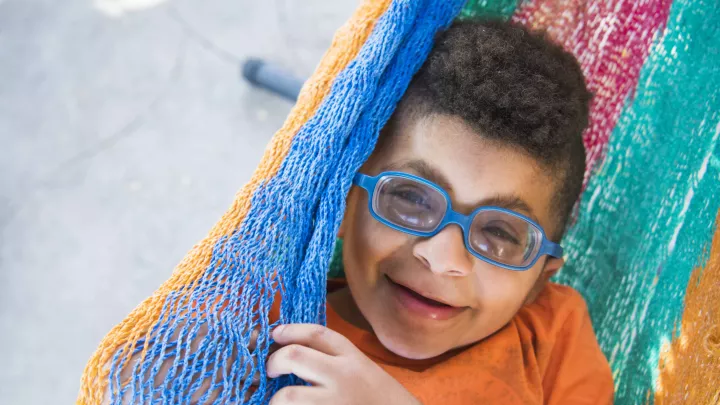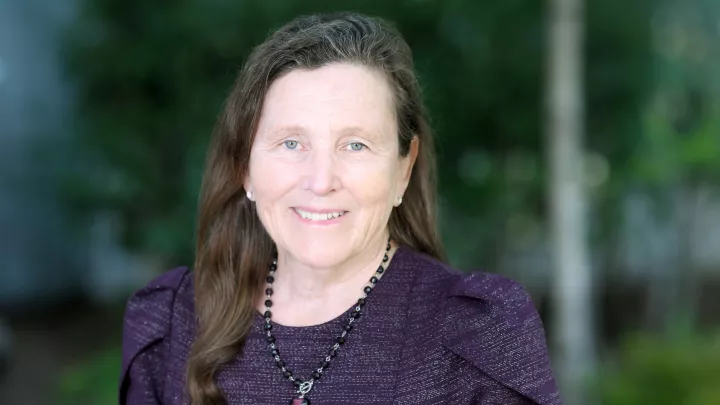Diagnosing Aerodigestive Disorders in Children
Aerodigestive disorders can affect one or more sections of a child’s airways, lungs and upper digestive tract. In addition, some children have more than one aerodigestive disorder and numerous symptoms. These factors make it more challenging to get an accurate diagnosis.
You can feel confident bringing your child to the Aerodigestive Program at Children’s Hospital Los Angeles for diagnosis and care. As the most established program in Southern California, we have decades of experience diagnosing aerodigestive disorders in children. Your child’s treatment plan depends on their unique diagnosis.
Tests to Diagnose Pediatric Aerodigestive Disorders
Your child’s initial evaluation takes place at our aerodigestive clinic. Your child sees a dedicated aerodigestive team that specializes in pediatric breathing, swallowing and feeding disorders. Our experts work together to determine which diagnostic tests your child needs based on their unique symptoms and health history.
Some tests may take place while your child is at the clinic. More commonly, our scheduler arranges testing for future dates that are convenient for your family.
We’re one of a few centers in the nation with the expertise to perform three endoscopic procedures (a triple scope) during one appointment. Not every child with aerodigestive symptoms needs a triple scope. But for those who do, this combination test minimizes a child’s exposure to anesthesia.
- Triple scope (triple endoscopy)
- Flexible endoscopic evaluation of swallowing (FEES) test
- Imaging scans
- Pulmonary function tests
- Sleep studies
- Transnasal endoscopy
Triple scope (triple endoscopy)
During a triple scope, your child undergoes three endoscopic procedures while under sedation. Endoscopes are thin tubes with lights and cameras on the end. They help our team identify structural changes, inflammation and other potential issues inside the airways, lungs and upper digestive tract.
Your child receives general anesthesia from anesthesiologists who specialize in sedating children who have breathing problems. A triple scope takes about 45 minutes. However, your child may be in the procedural room for longer while the anesthesia takes effect and then wears off. Depending on their recovery, your child may be able to go home the same day.
These three endoscopic procedures take place in this order during a triple scope:
- Flexible bronchoscopy with bronchoalveolar lavage: Our pulmonologist (lung and breathing expert) uses a flexible scope to view and take images of your child’s windpipe and bronchi (tubes that carry air to the lungs). The scope is about the size of a phone charging cord. They also perform a lavage, flushing a small section of the lungs with a sterile saline solution and then suctioning it out. Experts at our Department of Pathology and Laboratory Medicine examine this solution for signs of bacteria, fungi and potential lung inflammation. This pulmonary scope procedure takes place while your child is lightly sedated, which helps our team assess breathing issues. Your child receives more anesthesia for the other scope procedures.
- Direct laryngoscopy and bronchoscopy: Our otolaryngologist (ear, nose and throat expert) uses an inflexible (rigid) scope to view and take images of your child’s voice box (larynx) and windpipe (trachea). They also measure your child’s airway and airway structures.
- Esophagogastroduodenoscopy (EGD): An EGD is the last scope procedure. Our gastroenterologist (digestion expert) uses a flexible scope to view and take images of your child’s esophagus (food pipe), stomach and duodenum (first part of the small intestine). They may also take small tissue samples to check for signs of inflammation.
Flexible endoscopic evaluation of swallowing (FEES) test
A flexible endoscopic evaluation of swallowing (FEES) test helps diagnose dysphagia, a swallowing disorder. This test typically takes place at our clinic. They don’t need sedation. Our team knows how to keep children comfortable during this test.
Our team’s otolaryngologist performs this with a speech-language pathologist, who then gently threads a laryngoscope (thin tube about the size of a phone charging cord) through your child’s nose into their upper throat. A video camera and light on the scope allows our provider to view your child’s throat (pharynx), voice box and windpipe while they swallow saliva, liquids or small amounts of food.
A FEES test helps our team diagnose swallowing problems that can affect a child’s ability to eat and breathe. The test also shows if food or liquids are going into your child’s lungs instead of their stomach. This problem, called aspiration, increases the risk of respiratory infections such as pneumonia.
Imaging scans
Our radiology and imaging experts use the latest technology to capture high-quality images of your child’s aerodigestive tract.
Your child may get one or more of these imaging scans at some point during their evaluation:
- Chest CT scan of the lungs and airways
- CT scan of the neck
- X-rays of the chest, lungs and digestive tract
- Video swallow study using fluoroscopy (moving X-ray images)
Pulmonary function tests
Our Pulmonary Function Laboratory offers a full range of tests to evaluate your child’s lung health and breathing. We know how to keep kids comfortable during these tests, ensuring the best test results for an accurate diagnosis.
The pulmonary function tests your child needs will depend on their symptoms. Lung and breathing tests at our Pulmonary Function Laboratory include:
- Cardiopulmonary exercise test
- High-altitude simulation test
- Lung volume test
- Methacholine challenge (asthma) test
- Oscillometry
- Respiratory muscle strength test
- Spirometry
Sleep studies
Sleep medicine specialists at our pediatric Sleep Center perform a range of sleep studies (polysomnograms) to diagnose breathing-related sleep disorders in children. Sleep studies take place in our dedicated Sleep Laboratory. Our pediatric Sleep Center and Sleep Laboratory were among the first in the country to focus exclusively on children’s sleep disorders. Learn more about the types of sleep studies we perform at our Sleep Center.
Transnasal endoscopy
A transnasal endoscopy helps identify the cause of esophageal issues, including chronic cough, swallowing problems (dysphagia) and hoarseness. The procedure takes place at our clinic using an anesthetic to numb your child’s nose and throat. Your child doesn’t need sedation.
Our provider gently threads an endoscope (thin tube about the size of a phone charging cord) through your child’s nose into their esophagus. A video camera and light on the scope allows them to view your child’s esophagus and stomach. They may also take small pieces of tissue to check for signs of inflammation (a biopsy).
The Transnasal Endoscopy Program at CHLA was the first pediatric program of its kind in Southern California. We’re experts at keeping children comfortable during this test.
Treating Aerodigestive Disorders in Children
Treatments for aerodigestive disorders vary depending on the condition, symptom severity and impact on a child’s life. Our aerodigestive team will discuss treatment options with you. Your child may continue to receive care from one or more members of our aerodigestive care team. Or we may refer your family to a different specialist at CHLA or a provider in your community.
Aerodigestive Disorders Care at Children's Hospital Los Angeles
Our expert team of aerodigestive specialists diagnose and manage all types of breathing, feeding and swallowing issues in children. Learn more about the leading-edge care available at our Aerodigestive Program.
Contact us
The Aerodigestive Program at CHLA welcomes new patients, referrals and second opinions. Please contact us to make an appointment.
- Phone: 323-361-5845
- Email: aerodigestivereferrals@chla.usc.edu
- Second opinions: onlinesecondopinion@chla.usc.edu or visit Online Second Opinions


